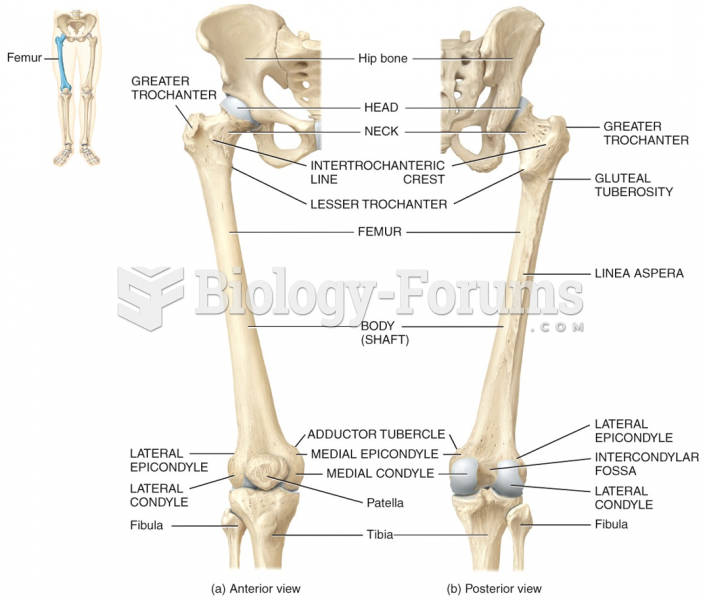|
|
|
About 80% of major fungal systemic infections are due to Candida albicans. Another form, Candida peritonitis, occurs most often in postoperative patients. A rare disease, Candida meningitis, may follow leukemia, kidney transplant, other immunosuppressed factors, or when suffering from Candida septicemia.
During pregnancy, a woman is more likely to experience bleeding gums and nosebleeds caused by hormonal changes that increase blood flow to the mouth and nose.
About 3% of all pregnant women will give birth to twins, which is an increase in rate of nearly 60% since the early 1980s.
An identified risk factor for osteoporosis is the intake of excessive amounts of vitamin A. Dietary intake of approximately double the recommended daily amount of vitamin A, by women, has been shown to reduce bone mineral density and increase the chances for hip fractures compared with women who consumed the recommended daily amount (or less) of vitamin A.
For pediatric patients, intravenous fluids are the most commonly cited products involved in medication errors that are reported to the USP.
 The exhaust drives the turbine wheel on the left, which is connected to the impeller wheel on the ...
The exhaust drives the turbine wheel on the left, which is connected to the impeller wheel on the ...
 Effleurage to transition to lower leg-distal to proximal. Apply effleurage with moderate pressure to ...
Effleurage to transition to lower leg-distal to proximal. Apply effleurage with moderate pressure to ...





